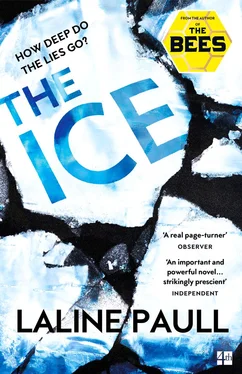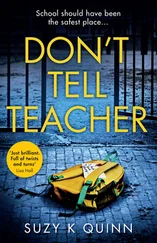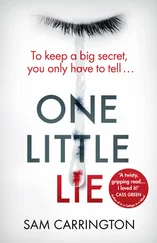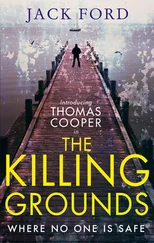He peered through the pub window. To feel so disappointed was pathetic. Nostalgia was for people whose lives were over. Tom had a date, and those girls in there had been joined by two meaty-looking boyfriends. Sean watched some animated talk about the bottle and the boys jerked their necks and squared their shoulders in ritual male display for the rich sod who’d undercut them.
Aimlessly drunk, emotionally disorderly, he decided to clear his head and walk back to Devon Square through Hyde Park and Kensington Gardens, in the hope of seeing the cavalry.
But it was too late in the day for the horses, and Sean sat on a bench with a coffee from one of the kiosks, trying to sober up. Vodka he could skilfully calibrate, but pints of beer somehow sidestepped that control and made him too emotional. From deciding as he walked away from the pub that he would park the whole Greenland nostalgia trip, he was now flooding with memories of it. He’d been there on three separate expeditions, the first with Tom, on the Lost Explorers’ Expedition when they were twenty. They had been racing partners on the ten-dog sled, and both had imagined that reading about it was tantamount to expertise. They had made complete fools of themselves and had never had a better time. The next couple of times had been for Kingsmith, investigating some mining tender that came to nothing; he had spent time in the capital Nuuk – but it had still been Greenland, still the Arctic.
The first time was the best, despite their incompetence. Because of it, perhaps. He and Tom sweating and stumbling about in the snow, desperately trying to wrestle ten dogs into their harnesses, the air snapping and flashing with the frenzy of excited barking, the dogs fully aware they had novices to deal with. One by one they got them in, resorting to both of them grabbing one dog and managing at last to work out which leg went through which bit of harness – exhausted before they even set off, but the dogs howling and leaping with the thrill of it, as if they’d never done it before either.
It was a shock when his phone rang, in Hyde Park. It was Mogens Hadbold, and he had good news.
One is often asked what is the attraction and what are the joys of Polar exploration. The answer is – Adventure – going where man has never gone before. Achievement – discovering something of value to mankind, such as the whale-fishery of South Georgia; or ramming your way through ice or any difficulties under steam or sail. The wonderful pure beauty of these regions, the healthy invigorating life; and last but not least – comradeship – the comradeship of men. Men who fight alongside you, toil with you, laugh with you, and chaff you. Pals who rack their brains for abuse and epithets to hurl at each other, and who fight for their absent chums. Pals who stand by each other through thick and thin; who share trials, hardships, joys, dangers and food, and are determined, at all hazards, to ‘see it through’ together. For such men you feel a great affection, and the results are teamwork and loyalty of the finest, highest quality, with joy of memory that never fades away.
Under Sail in the Frozen North: The Log of the 1926 British Arctic Expedition (1927)
Frank Arthur Worsley
From his park bench, Sean sent emails to Kingsmith, Radiance and Tom. He phoned Martine and said he would be over soon, then he called Gail, to say he wouldn’t. He told her the news and first she congratulated him then asked for a divorce. She knew that Martine was part of the consortium and not one of his silly little girls, and she understood that now his relationship with her would become paramount. Gail wanted the dignity of immediate separation. She told him her lawyer’s name and hung up. Sean was shocked that she was so prepared.
When he arrived at Martine’s apartment she had a spare key and a bottle of chilled Krug waiting. This was the moment they had imagined, and though he enjoyed seeing her blaze with their triumph, he felt oddly detached. Perhaps this was a sign of success; when vintage Krug became a fizzy drink. Not a noble pint in a fuggy all-comers pub, with a mate who kept you level.
Martine slid down onto her knees in front of him and smiled, in the way he understood. He closed his eyes. The effort was over, success was his. The strain of living a lie with Gail was also gone. And Tom had come in and done exactly what Sean had brought him in to do: make him the winner. But he did not feel happy. After a while Martine looked up, concerned. He wound her hair in his hands and tried to surrender to her skill. He tried harder, thinking of the two girls in the pub, of recent porn – an appetite no woman would ever wean him from. Still nothing. Gently he lifted her back up to him. He held her.
‘Why am I not happy?’
‘You got what you wanted. Now you feel empty.’
He nodded. It was true, and her insight made him feel tender. He stroked her hair, in silent consolation for their first erotic non-event. Later they watched television together, also for the first time.
‘A decent man’s content with profit,’ Kingsmith used to say to him, in the early days. ‘Only fools want more – and fools are tools but never partners.’ And Sean, or Sean boy as Kingsmith called him, had laughed and watched the money rolling in, and worked seven days a week if necessary, as it often was, learning his mentor’s particular ways, travelling with him, growing familiar with the Russian dolls of his financial habits, and Kingsmith’s migratory routes: the Caymans to Panama, Monaco to Jersey, to Zurich – to thin air. Very often a scrap of a percentage point of profit fell under the table to Sean, sometimes as a cash bonus, but more often as a last-minute allocation of some IPO, some hitherto obscure company Kingsmith had carefully cultivated up to its stock market debut, usually but not always connected with mining, one of his major interests. Sean proved himself an excellent steward of his financial good fortune, using part of his profit to grow his property portfolio, and always reinvesting in something else Kingsmith recommended.
Both knew Sean would never be in the same league, but he was a quick study and had become personally wealthy beyond the dreams of his twelve-year-old, or even twenty-year-old self. Wealthy enough to acknowledge that money was not enough. What he’d always dreamed of was his name on the map. Literally. Like Barentsz or Bering or – well, OK, not like Cecil Rhodes – but to be a man of daring and discovery and honour, whose explorations could name mountains and seas.
Now, after the Pedersen deal, that secret glory-seeking part of him rejoiced like never before. He, Sean Cawson, owned a tiny piece of the Arctic. The ice was receding and the TransPolar sea route was busier every day, moving global markets from supermarket checkouts to construction contracts as the price of goods went down. Untold mineral wealth was newly within reach. There was something magical in the air; it was a new golden age of trade and opportunity, and he was a very modern buccaneer, in it for positive influence, not plunder. Surely that was worthy of some sort of recognition?
Midgard was Sean’s biggest coup, but somewhere deep inside he had always known he would succeed. Several months ago, and in the face of the heavy odds against him winning the bid, he had placed a large retainer on the services of his chosen Norwegian architect, in order to capitalise on the narrow time window for the work. The morning after the Pedersen decision, and after Martine had left for work, he made that call from her apartment, and the sound of jubilation in the Oslo office buoyed him in happiness all the way across Kensington Gardens.
He was walking towards Selfridges, to kill a bit of time before meeting Joe Kingsmith for lunch. As yet he did not know the venue or the hour – but that was typical. Sean hadn’t even known he was in London but found the email when he woke, saying he’d be at the Wallace Collection, then they could grab a bite. He liked to look at the old weapons collection, Sean remembered. It was the older man’s indulgence to himself, and usually meant things were going well.
Читать дальше












